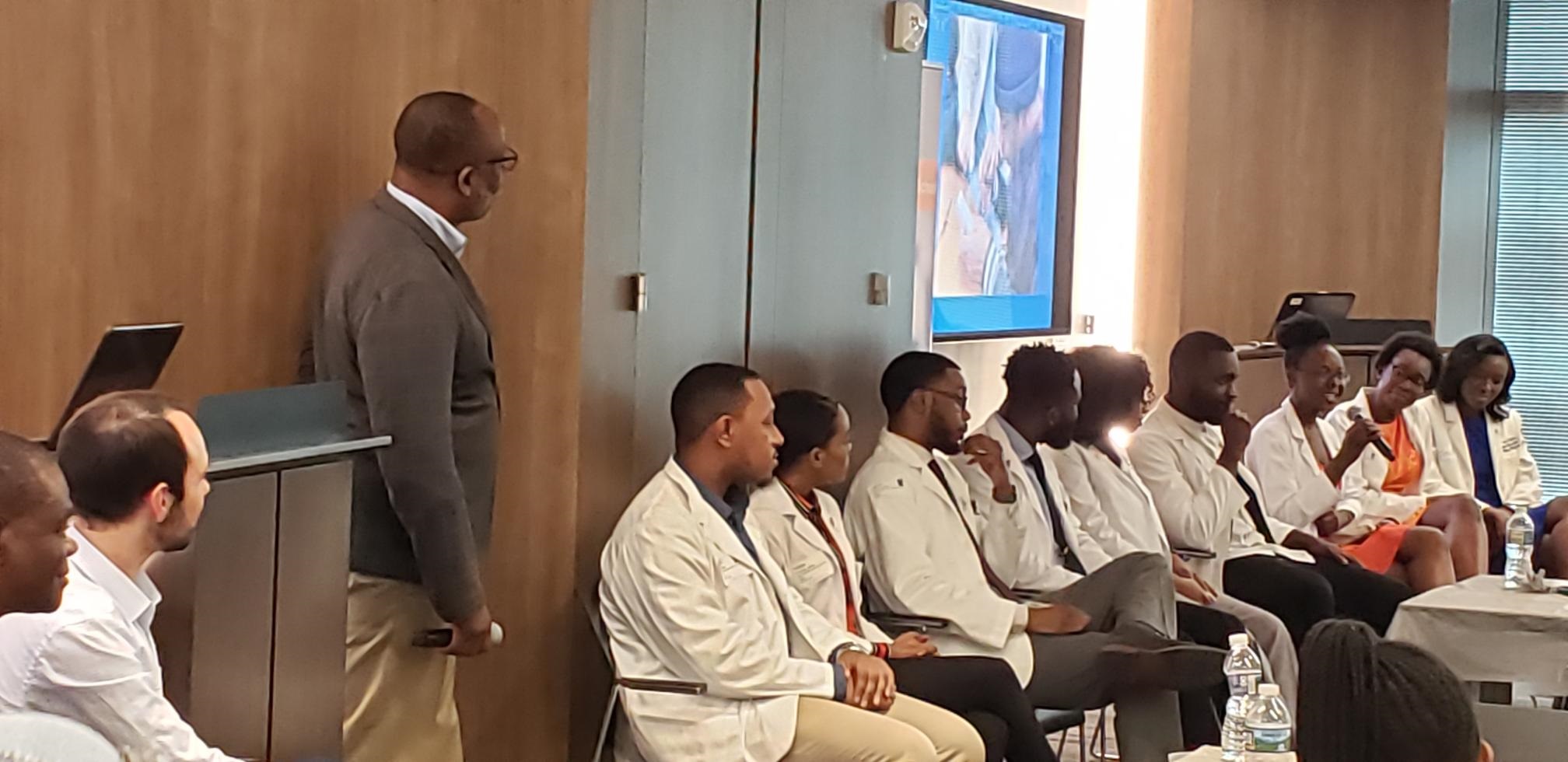Health Equity

News, Statements, and Testimony on Health Equity Issues
25th Council session information coming soon.
MSDC Joins Health Associations Asking for Centralize Medicaid Credentialing
On November 19, the Medical Society of DC joined the DC Primary Care Association and other local health associations on a memo arguing for centralized credentialing.
The memo addresses the leadership of the Department of Health Care Finance regarding credentialing of Medicaid providers. Currently in the District a physician or healthcare provider needs to be credentialed by five different entities to ensure they are reimbursed for seeing Medicaid patients. This process leads to delays and gaps in care, leading providers at times to be unable to see certain Medicaid patients and cause offices to do more paperwork.
The memo (see below) asks DHCF to centralize credentialing and points to other states successfully doing just this. In addition the memo asks DHCF to implement credentialing requirements consistent with Maryland that has shown to speed up credentialing.
As local budget challenges continue and federal funding of Medicaid at current levels is unlikely in the future, it is critical that DHCF adopt now improvements to streamline the delivery of care.
____
To: Lisa Truitt, Director, Health Care Delivery and Management Association, Department of Health Care Finance
From: Patricia Quinn, VP of Policy and Partnerships, DC Primary Care Association
Justin Palmer, VP, Public Policy & External Affairs, DC Hospital Association
Mark LeVota, Executive Director, District of Columbia Behavioral Health Association
Robert Hay Jr., Executive Vice President, Medical Society of DC
Veronica Sharpe, President, District of Columbia Health Care Association
Kurt Gallagher, Executive Director, DC Dental Society
Ian Paregol, Executive Director, DC Coalition of Disability Service Providers
Re: Recommendation for Centralized Medicaid Provider Credentialing
Date: November 19, 2024
CC: Melisa Byrd, Senior Deputy Director, Medicaid Director, Department of Health Care Finance
Ruth Pollard, President and CEO, DC Primary Care Association
The DC Primary Care Association, our member health centers, and our partners in the health care delivery system including the DC Hospital Association, the DC Behavioral Health Association, the Medical Society of DC, the DC Health Care Association, the DC Dental Society, and the DC Coalition of Disability Service Providers are grateful for the support of the Department of Health Care Finance (DHCF) as we work to solve issues impacting patient access and provider sustainability. As initially described in our February 2023 memo, the process to credential providers for participation in Medicaid managed care networks is burdensome, lengthy, and often opaque. Credentialing delays significantly impact our ability to address current well-documented workforce shortages, and we urge DHCF to take regulatory steps to improve the timeliness and clarity of credentialing process.
In the District, providers must submit documents to no fewer than five separate entities in order to be credentialed by all Medicaid payers. To ease provider burden, DHCF should centralize credentialing, requiring a single standardized process at the District level instead of an individual process with each MCO. Some state examples include:
1. In Ohio, a Managed Care Procurement division of Medicaid runs the Centralized Credentialing program, contracting with Maximus, Inc to serve as a single point of contact (Centralized Verification Organization or CVO) and to develop agreements for delegated credentialing arrangements with health system
2. In North Carolina, a 2018 Centralized Credentialing “concept paper” led to the development of centralized provider enrollment via the NCTracks system. North Carolina reports processing turn-around statistics on their NCTracks website.
3. In Mississippi, providers are credentialed by the Medicaid agency, pursuant to language updated in their 2022 managed care contracts and following 2021 legislation requiring a uniform process.
DCPCA and our partners at DCHA, DCBHA, MSDC, DCHCA, DC Dental, and DC Coalition also recommend that DHCF implement specific credentialing requirements consistent with Maryland’s insurance statute 15-112 that would significantly improve the credentialing process for providers including:
- Requiring notice to providers within 10 days of submission of incomplete applications and steps to remediation
- Requiring notice within 30 days of submission presumptive intent to credential, allowing provisional billing to begin
- Mandating transferal of credentialing status when providers change employer
DHCF has an opportunity to act expeditiously in support of providers facing well-documented post-pandemic workforce and fiscal pressures. We look forward to working in partnership to implement needed changes to the District’s credentialing processes before the close of 2024
Sample of Health Equity Legislation MSDC Tracked
What does it say? The bill allows for the administration of medicinal marijuana in schools as well as allows students to bring sunscreen to schools and apply it without a prescription.
MSDC position: MSDC supports the language permitting sunscreen application in schools
Current status: A win for DC physicians and public health! The legislation passed the Council in February and was signed by the Mayor. Previous temporary and emergency legislation permitted students to use sunscreen at schools this school year already.
What does it say? The bill requires DC Health to establish an electronic Medical Order for Scope of Treatment registry (eMOST).
MSDC position: MSDC supports this legislation to more easily allow patients to make their treatment orders known.
Current status: A win for the physician community and our patients! The Council passed the bill in December and the Mayor signed it into law on January 16, 2020.
What does it say? The bill would implement a 1.5 cent per ounce tax on the distribution of "sugary" beverages. The money collected from the tax would establish a Healthy People, Healthy Places Open Spaces Grant Program.
MSDC position: MSDC sent a letter to Council Chair Mendelson asking for a hearing to discuss all of the issues around a beverage tax.
Current status: The bill was introduced October 8, 2019 and referred to the Committee on Business and Economic Development and the Committee of the Whole.

Leave a comment